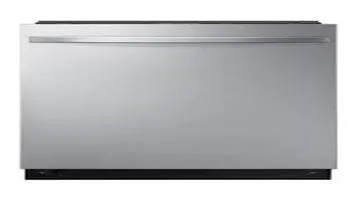A Comprehensive Review of Air Filters
Air filters are essential components in various systems designed to improve air quality by removing impurities and particulates. They are commonly used in HVAC systems, automobiles, and air purifiers to capture dust, pollen, mold spores, and other airborne contaminants. Typically made from materials like fiberglass, paper, or synthetic fibers, air filters help maintain a clean and healthy environment, preventing respiratory issues and equipment damage. Different types of air filters, such as HEPA (High-Efficiency Particulate Air) filters, electrostatic filters, and activated carbon filters, offer varying levels of filtration efficiency. Regular maintenance and replacement of air filters are crucial for optimal performance, ensuring that air remains clean and systems operate efficiently. By enhancing air quality, air filters contribute significantly to overall health and well-being.

Air filters are an indispensable component of modern living, playing a critical role in maintaining indoor air quality by capturing pollutants, allergens, and other airborne particles. Whether installed in HVAC systems, air purifiers, or automotive engines, air filters offer a variety of benefits that contribute to health, comfort, and overall well-being. This review delves into the various types of air filters, their effectiveness, and considerations for selecting the right one for your needs.
Types of Air Filters
1. Mechanical Filters:
Mechanical filters, including HEPA (High-Efficiency Particulate Air) filters, are among the most common and highly regarded air filtration systems. HEPA filters are capable of trapping 99.97% of particles as small as 0.3 microns, making them highly effective against dust, pollen, mold spores, and certain bacteria. Their widespread use in medical facilities, laboratories, and residential air purifiers underscores their reliability and efficiency.
2. Activated Carbon Filters:
Activated carbon filters are renowned for their ability to remove gases, odors, and volatile organic compounds (VOCs) from the air. They work through the process of adsorption, where pollutants adhere to the surface of the activated carbon. These filters are often used in conjunction with other types of filters to provide comprehensive air cleaning, particularly in environments plagued by smoke, cooking odors, or chemical fumes.
3. Electrostatic Filters:
Electrostatic filters use an electrical charge to attract and capture airborne particles. These filters can be either washable or disposable, adding a layer of convenience for users. While not as effective as HEPA filters in trapping tiny particles, electrostatic filters can still significantly reduce dust, pollen, and other allergens, making them a popular choice for residential HVAC systems.
4. UV Filters:
Ultraviolet (UV) filters use UV light to kill or deactivate microorganisms such as bacteria, viruses, and mold spores. They are often used in conjunction with other filtration systems to enhance overall air quality. However, UV filters do not remove particulate matter, so they are typically part of a multi-stage filtration system.
5. MERV-Rated Filters:
Minimum Efficiency Reporting Value (MERV) ratings provide a standardized way to compare the efficiency of air filters. The MERV scale ranges from 1 to 16, with higher numbers indicating better filtration. Filters with a MERV rating between 8-13 are commonly used in residential settings and offer a good balance between air flow and filtration efficiency.
Effectiveness and Benefits
Air filters offer numerous benefits that extend beyond merely capturing dust and particles. Here are some key advantages:
1. Health Benefits:
The primary benefit of air filters is the improvement of indoor air quality, which can have a direct impact on health. By removing allergens such as pollen and pet dander, air filters can alleviate symptoms for individuals with allergies or asthma. HEPA filters, in particular, are highly recommended for people with respiratory issues due to their superior particle-trapping efficiency.
2. Odor Control:
Activated carbon filters are particularly effective at removing odors from cooking, pets, and smoke, creating a more pleasant indoor environment. This can be especially beneficial in homes with open floor plans or in areas where outdoor air quality is poor.
3. Prolonged Equipment Life:
In HVAC systems and automotive engines, air filters play a crucial role in protecting equipment from dust and debris, thereby extending the life of the machinery. Clean filters ensure that HVAC systems run more efficiently, reducing energy consumption and lowering utility bills.
4. Reduced Cleaning:
By capturing dust and other airborne particles, air filters can reduce the frequency of cleaning required in a home or office. Less dust accumulation on surfaces and in vents means fewer chores and a cleaner living environment.
Considerations for Choosing an Air Filter
When selecting an air filter, several factors should be considered to ensure optimal performance and suitability for your needs:
1. Filter Type:
Determine the primary purpose of the air filter—whether it's for removing particulates, controlling odors, or eliminating microorganisms. This will help you choose between mechanical, activated carbon, electrostatic, or UV filters.
2. MERV Rating:
Choose a filter with an appropriate MERV rating for your specific needs. While higher MERV ratings offer better filtration, they can also restrict airflow in certain HVAC systems, so it's important to find a balance that suits your system's capacity.
3. Maintenance:
Consider the maintenance requirements of the filter. Some filters need regular replacement, while others, like electrostatic filters, may be washable. Understanding the maintenance involved can help you make an informed decision.
4. Cost:
Filter prices can vary widely based on type, brand, and efficiency. While higher-quality filters may come with a higher upfront cost, they often provide better performance and longevity, potentially saving money in the long run.
Conclusion
Air filters are a vital component in maintaining indoor air quality and ensuring a healthy living environment. With various types available, each offering unique benefits, there is an air filter to suit every need. Whether prioritizing health benefits, odor control, or equipment protection, selecting the right air filter can make a significant difference in air quality and overall well-being. By understanding the different types, their effectiveness, and key considerations, consumers can make informed decisions and breathe easier knowing they have chosen the best option for their needs.





